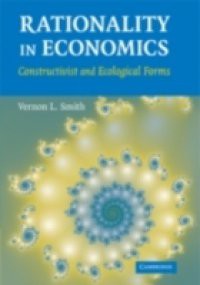The principal findings of experimental economics are that impersonal exchange in markets converges in repeated interaction to the equilibrium states implied by economic theory, under information conditions far weaker than specified in the theory. In personal, social, and economic exchange, as studied in two-person games, cooperation exceeds the prediction of traditional game theory. This book relates these two findings to field studies and applications and integrates them with the main themes of the Scottish Enlightenment and with the thoughts of F. A. Hayek: through emergent socio-economic institutions and cultural norms, people achieve ends that are unintended and poorly understood. In cultural changes, the role of constructivism, or reason, is to provide variation, and the role of ecological processes is to select the norms and institutions that serve the fitness needs of societies.

